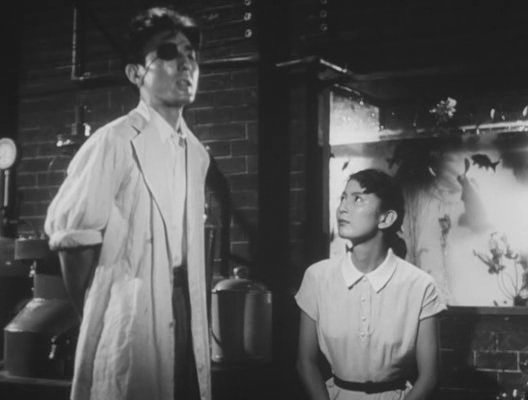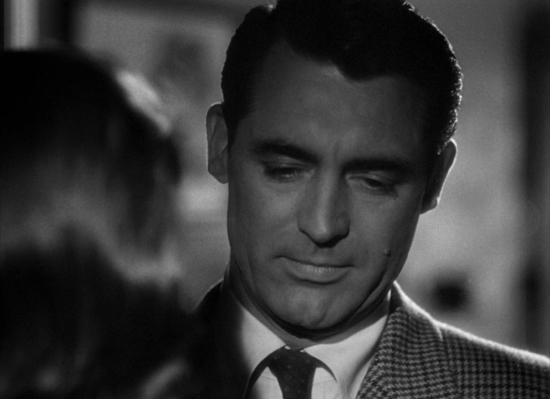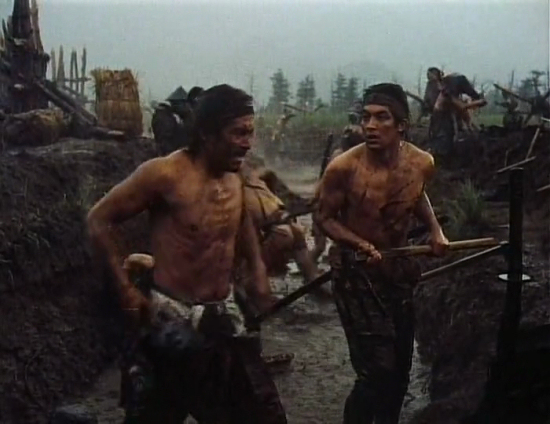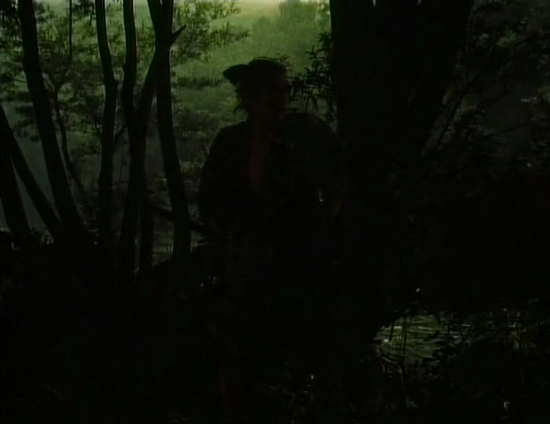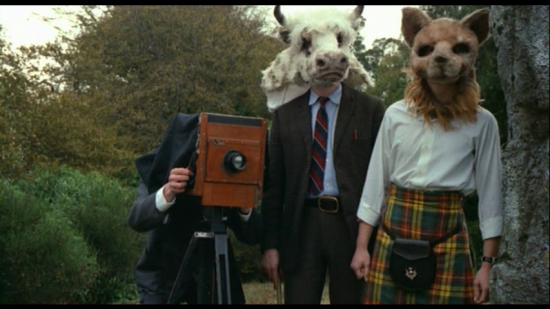
Some of the most confused vampires I've ever seen are at the centre of Jean Rollin's 1979 film
Fascination. But everyone seems pretty confused in this movie. I guess because it's essentially a porno, Rollin figured things like consistent characterisation and motivations adhering to some kind of thread of personality were extraneous. Maybe I've been spoiled by the Japanese exploitation films I've watched lately--
Fascination's a French film. Who would've thought the Japanese would have a surer hand at cinematic eroticism than the French? But some interesting visual ideas, beautiful women, and a degree of pure ridiculousness make
Fascination an enjoyable film.
The story follows a thief named Mark, who's stolen some gold coins with the aid of a few cutthroats who betray him and try to take the coins for themselves rather than trust Mark to fence them in England. Mark runs from them to hide in a large chateau surrounded by a moat. Inside the house, he finds two beautiful women, Elizabeth and Eva, who claim to be servants.
At first they seem genuinely frightened by Mark until he locks them in a bedroom where Elizabeth giggles as she reveals a spare key for the room hidden under a table cover. This leads to them smugly approaching Mark and threatening him with daggers, which is where I thought, "Oh, so they were playing before and really they have supernatural vampire strength and abilities."
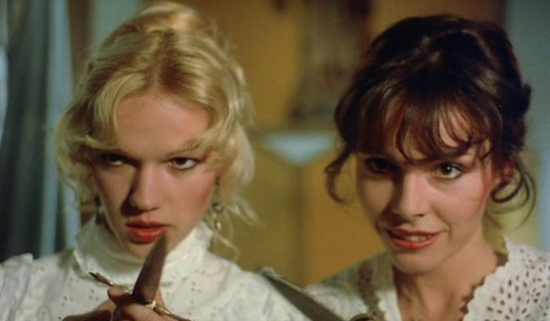
But no, vampirism in this movie is just rich people who like to drink blood. The rest of the movie went back and forth between me wondering how Mark can act so at ease with the apparent threat of imminent death and me wondering how the group of vampires can be so confident of their domination of Mark. By the end of the movie, it's clear neither side had any foundation for their smugness and everyone seems kind of stupid in retrospect.

Really, these people weren't cut out to be vampires or vagabond thieves, but as porn stars they're not too bad. There's a lot of okay faux lesbian stuff, kicking off with a scene between Elizabeth and Eva, though the director's compulsion to show that the two are actually kissing with tongue leads to somewhat awkward looking "tongue bumping" let's call it.

The sex in this movie is otherwise mostly based around power plays, involving one person's sexual possession and dominance of another. Around two thirds through the movie, a whole bunch of other vampire women show up led by Helene, who makes it clear to Mark that she's very much the dom here, and there's some exciting dialogue between them as they both posture, both claiming ability to take the other forcibly.
Then, when Mark wins fifteen minutes of slavery from Helene after a game of Blind Man's Bluff, the film really drops the ball. Mark leads Helene out of the room, but instead of going with them, the movie goes to the other women discussing whether Mark will humiliate their leader. The whole time I was saying, "Why don't we cut to them and find out?"
When we do finally go to them, both are still dressed and apparently nothing's happened. Mark tells her to undress, and she does . . . to some rather heavy duty Edwardian underwear, where she stops and Mark seems to feel content with her stopping.
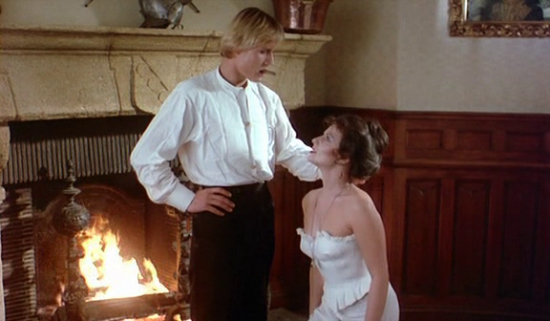
He pretends like he's going to burn her with his cigar before she tells him the fifteen minutes are up. The time between her submitting to the idea of being his slave for fifteen minutes and her noting the fifteen minutes were up was around three minutes of film time. Jeez, Rollin, why even introduce the bit if that's all you're going to do? I thought maybe the actress playing Helene declined to appear nude, but she appears again shortly in a transparent ceremonial gown with the other girls.

It's unarmed and essentially naked that the girls plan on overpowering Mark and ritualistically murdering him. Their plans are thwarted when he chooses to exit the building, not quite running, but, to be fair, walking briskly.
He's upset because he found out that one of the vampires had killed with a scythe one of the thieves trying to kill him. This was one of the more visually fun moments in the film, as Eva, naked except for a black cloak, cut down the thief.

But it suffers from a long take of the woman posing artificially in front of the camera, and that's another problem with this movie--it was in desperate need of a better editor. Reaction shots are sorely missing from some scenes, and many shots last much longer than appropriate. One shot of a woman walking towards the camera even ends with her bumping into the camera.
This stuff is, though, part of the movie's charm and in the end I have to say it is a cute film.









